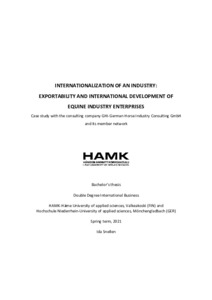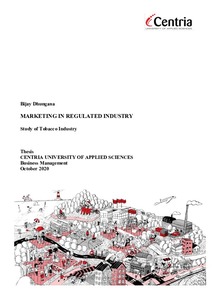Lean Practices in the Textile Industry- a Comparison of Cases from India, the US, and Bangladesh
Biswas, Alok (2023)
Biswas, Alok
2023
All rights reserved. This publication is copyrighted. You may download, display and print it for Your own personal use. Commercial use is prohibited.
Julkaisun pysyvä osoite on
https://urn.fi/URN:NBN:fi:amk-2023052413769
https://urn.fi/URN:NBN:fi:amk-2023052413769
Tiivistelmä
The textile industry plays a significant role in the global economy, with countries such as India, the United States, and Bangladesh emerging as crucial players in textile production and export. In recent years, there has been a growing interest in implementing lean practices in the textile industry to improve operational efficiency, reduce waste, and enhance overall competitiveness. This thesis aims to compare and analyze the application of lean practices in the textile industries of India, the United States, and Bangladesh, focusing on identifying similarities, differences, and best practices.
The study adopts a qualitative research approach, utilizing case studies as the secondary data collection method. Three textile manufacturing companies, one from each country, will be selected as case studies based on their size, industry reputation, and willingness to participate. Data will be collected through interviews, on-site observations, and document analysis, providing a comprehensive understanding of lean implementation strategies and outcomes.
The comparative analysis will focus on various aspects of lean practices, including process optimization, waste reduction, supply chain management, employee involvement, and continuous improvement initiatives. The findings of this research will shed light on the contextual factors that influence the adoption and success of lean practices in the textile industry across different countries.
The outcome of this study is to provide valuable insights and recommendations for textile industry stakeholders, including manufacturers, policymakers, and practitioners, on how to implement lean practices in their respective contexts effectively. Furthermore, the comparative analysis contributes to the literature on lean manufacturing, offering a cross country perspective on the challenges and opportunities associated with lean adoption in the textile industry.
The study adopts a qualitative research approach, utilizing case studies as the secondary data collection method. Three textile manufacturing companies, one from each country, will be selected as case studies based on their size, industry reputation, and willingness to participate. Data will be collected through interviews, on-site observations, and document analysis, providing a comprehensive understanding of lean implementation strategies and outcomes.
The comparative analysis will focus on various aspects of lean practices, including process optimization, waste reduction, supply chain management, employee involvement, and continuous improvement initiatives. The findings of this research will shed light on the contextual factors that influence the adoption and success of lean practices in the textile industry across different countries.
The outcome of this study is to provide valuable insights and recommendations for textile industry stakeholders, including manufacturers, policymakers, and practitioners, on how to implement lean practices in their respective contexts effectively. Furthermore, the comparative analysis contributes to the literature on lean manufacturing, offering a cross country perspective on the challenges and opportunities associated with lean adoption in the textile industry.
Kokoelmat
Samankaltainen aineisto
Näytetään aineisto, joilla on samankaltaisia nimekkeitä, tekijöitä tai asiasanoja.
-
Pakistani and Finnish textile industry and risk factors for Pakistani textile industry : Comparison of textile industries in countries, financial performance and survey report of risk factors for Pakistani textile industry
Zeeshan, Muhammad (2020)The main aim of this thesis is to define the overall history and the present condition of textile industries of Pakistan and Finland, and what risk factors are affecting to Pakistani textile industry. Textile sector is ...Rajattu käyttöoikeus / Restricted access / Tillgången är begränsad -
Internationalization of an industry: Exportability and International Development of equine industry enterprises - Case study with the consulting company GHI-German Horse Industry Consulting GmbH and its member network
Snellen, Ida (2021)Internationalization - a term that not only demands a substantial planning, time and costs in enterprises; external consulting assistance and the application of strategies are often essential. Growing globalization and ... -
Marketing in regulated industry : Study of Tobacco Industry
Dhungana, Bijay; Dhungana, Bijay (2020)Most of the companies invest heavily in marketing and make use of available communication channels such as digital media, print and press, television and social media to reach their customer and to build relationship ...


